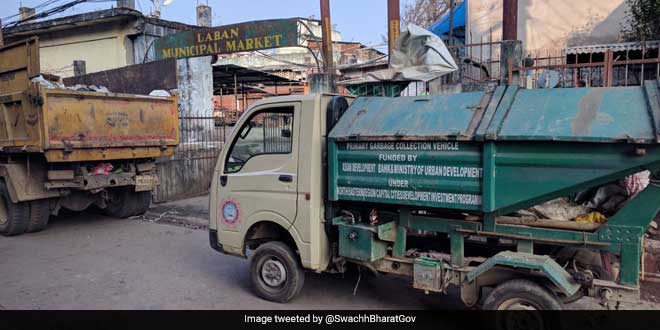Highlights
- Meghalaya to send a team to Alappuzha to learn the city’s waste management
- Shillong, the capital city alone generates over 150 tonnes of waste daily
- Meghalaya has no comprehensive waste management system for the state
New Delhi: Learn from the best, is the model that the state of Meghalaya is set to follow. After years of struggling with waste management, Meghalaya has decided to emulate Kerala’s Alappuzha, arguably India’s best when it comes to managing waste. The Department of Urban Affairs, Government of Meghalaya will send a team to Alappuzha during the first week of May to study the several techniques and programmes implemented by the Kerala city. Over 500 tonnes of waste is generated in Meghalaya daily, with the capital city Shillong accounting for 150 tonnes daily.
It would be incorrect to say that Meghalaya has not been able to make any strides in successfully managing its waste. Since 2014, with the inception of Swachh Bharat Abhiyan, sporadic programmes on waste management have been introduced in Meghalaya, but the state is yet to take up a comprehensive programme which covers it waste management in its entirety.
Also Read: Tackling Garbage Crisis, The Alappuzha Way: This Kerala City Shows How To Get Rid Of Landfills
Sporadic successes such as the waste management programme in Nongstoin, where school children collect waste on a weekly basis, or the trash to cash programme in East Khasi Hills district, where the government is paying the residents if they turn over their waste, have not been really able to address the waste management problem of the state.
In the last four years, some districts have done better than others in managing waste with the introduction of a few localized programmes, but the overall waste management situation remains below par. We will dispatch a team to Alappuzha to see how the city has adopted a comprehensive waste management programme successfully, said E. Kharmalki, Director, Urban Affairs, Government of Meghalaya.
Alappuzha’s waste management programme has drawn international praise, even from United Nations. Waste segregation is practiSced in nearly 40,000 households in the city. 15 composting setups throughout the city convert wet waste into manure within three months. Biogas is used by an estimated 4,000 households in the city. Meghalaya is looking to implement a similar structure of waste management where segregation will play a major role. Only 16 of 57 wards across the state have achieved 100 per cent door-to-door waste collection, while segregation is still practised only in a handful of wards.
Shillong, the capital is our main concern as people continue to dispose waste along roads in the city. Given that Shillong is scheduled to hold the National Games in 2022, we would want the city to ideally become waste free by then. Alappuzha’s three important achievements of waste segregation, composting and utilisation of biogas are what are looking to learn from, said Mr Khalmaki.
The Meghalaya team is scheduled to leave for Alappuzha by the end of April. Meghalaya’s decision to take lessons from Alappuzha is a concept that can be utilised by other cities/states plagued by the waste problem.
Also Read: This Meghalaya Village Uses 430 Kilos Of Plastic Waste To Construct One Kilometre Long Road






























